Sorry, long post, which includes a letter on internal threats to the principle of shared governance from Professor Emeritus of Biology Frank Stahl, and information on the 2012 threat from the administration to dissolve the UO Senate and Faculty Assembly.
Five years ago on Dec 15th 2011 the UO Faculty Assembly ratified the UO Constitution, codifying the roles of the Senate and the Faculty Assembly in shared governance. President Lariviere signed it on Dec 15th, as his last official act:
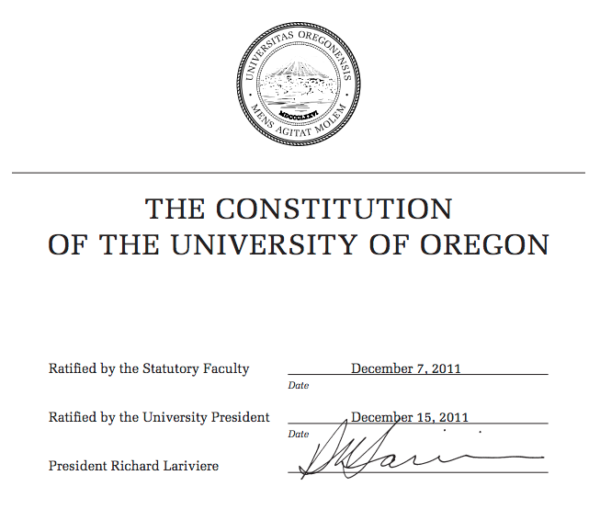
To mark the 5th anniversary, Professor Emeritus of Biology Frank Stahl sent this letter on his concern that the closed Faculty Advisory Council may subvert the open processes of the Senate:
On Constitution Day, the Old Man Reflects on Governance
The University of Oregon Charter dictates that the President and professors share the responsibility for governing the University: “The President and professors constitute the faculty of the University, and, as such, shall have the immediate government and discipline of it and the students therein…” (Oregon Revised Statutes, ORS § 352.010; originally section 14 of Law No. 9, Oregon Laws 1876)
Over the years, University governance drifted away from the requirements of the Charter, until, in November, 2008, a letter from the Oregon Department of Justice (DoJ) (www.uoregon.edu/~assembly/dirSF/dirExtra/DOJ–OP–6735.pdf) condemned the UO’s entire governance structure as being in violation of that law.
The DoJ letter prompted the University to create a University Senate with governance authority (and broad membership) subject to oversight by an Assembly (comprised exclusively of Statutory Faculty). These governing bodies, and the relations between them, were defined in a Constitution that prohibited the Senate from delegating any of the governance authority entrusted to it.
UO Constitution, Section “7.1 … The governance authority conferred upon the University Senate may not be delegated in whole or in part to any officer or committee of the University Senate or to any other body.”
However, the Senate does appear to have delegated governance authority to its Faculty Advisory Council. This Council (FAC) has all the trappings of a branch of governance and is insulated from all oversight (December 15, 2015, Senate meeting). Officially, the FAC is charged with being “…responsible for providing the President and other Administration officials with faculty opinion and counsel on the wide range of university affairs.” It is composed of elected faculty members, the Provost and Assistant Provost, the ASUO President and a couple of elected Officers of Administration as well as the Senate President and Vice President and, of course, the University President. It is allowed to operate in secrecy. The FAC’s charge naively states, “The FAC is purely advisory…”
But, what is the reality of the FAC? Its composition gives it the gravitas of a governance body, and the FAC has labeled itself as a component of governance: “It [the FAC] is a key arm of shared governance.” (End of year FAC report, June 2013.) One might say, “If it looks like a duck and quacks like a duck … “
Harm to the Senate: By looking like a powerful secret body, the FAC attracts governance activists. In so doing, it starves the Senate of candidates, weakening that body. The harm done to the Senate doesn’t end there.
Conflicts of Interest: As ex officio members of the FAC, the Senate President and Vice President are confidential advisors to the University President. At the same time, the Senate Officers have been elected, by the Senate, to openly serve the Senate in its role as the channel by which the Faculty can make its wishes known and acted upon. Do you think that being in service to both the President and the Senate creates the potential for conflict of interest? You can bet your old Nike AJs it does!
Presidential Interference in the Senate? An early, post 1996, Senate President asserted (to me) that a University President sought to manipulate Senate activities by pressuring him. Later, in 2002, a President pressured the individual Senators (http://www.dailyemerald.com/2003/02/20/assembly-opens-iraq-dialogue/) to forgo both debate and voting on a certain resolution.
Subsequent examples of apparent presidential interference in the operations of the Senate are only inferred and best left unsaid. However, the charge of interference gains credibility by the recent public testimony of a former Senate President that the University President does, indeed, interfere with the Senate (at 2:18;50 of the video at https://youtu.be/qn1T21TlS_0?t=2h8m2s).
The President is, of course, free to influence the Senate by making his views known. He can efficiently do that by addressing the Senate in open forum. (That’s why the Constitution made him a non-voting member of the Senate.) But influence becomes interference if the influence is concealed under a cloak of confidentiality, which is handily available in the FAC.
What can the Senate do to help secure a future for open, shared governance? Deep-sixing the FAC would be the best solution. The gains in the goal of transparent, constitutional governance are obvious. The losses include the FAC members’ weekly(?) hot lunch in the JH conference room.
A less draconian step would be the removal of Senators from the FAC. This simple step would both reduce the FAC’s temptation to act as a governance body and would eliminate the lever by which the President can exert cryptic control of the Senate. It would also relieve the Senate Officers of the obligation of performing as Confidential Advisors to the President, freeing them to more fully serve the Senate.
The future of our Constitutional shared governance depends on acceptance of the Senate as the University’s sole body of internal governance. The Senate can achieve that acceptance only by freeing itself from control by the FAC. Go, Ducks!
Speaking for myself, I disagree that there is a conflict between faculty participation in open shared governance via the Senate and the closed (but elected) Faculty Advisory Council. I think they are complementary, and the more overlap between the two bodies the better. While President Michael Schill has done a lot to promote shared governance through the Senate, and make it more effective, I think future threats to shared governance with some future president are more likely to come from some future administration appointing un-elected faculty to its own “Advisory Groups”.
The extreme case would be this secret plan devised by former GC Randy Geller under Interim President Bob Berdahl. The Senate only found out about this plan from the fortuitous release of the digital Presidential Archives, or as current Deputy GC Doug Park calls it, “The Incident”:
1/4/2015: The UO administration’s secret plan to abolish the UO Senate
UO Matters operatives have obtained a “confidential” memo from former UO General Counsel Randy Geller to former Interim President Bob Berdahl, recommending that Berdahl abolish the University Senate and prohibit most faculty members from being members of the Faculty Personnel Committee, Faculty Advisory Counsel, Student Conduct committee, the Intercollegiate Athletics Committee, etc.
Geller made this recommendation three weeks after the administration admitted defeat over the faculty union. The full memo is here. As you can see it advises:
1) abolition of the current UO Senate and all its committees;
2) creation of a new faculty-only Senate, limited to making recommendations to the administration;
3) membership on key committees to be restricted to non-bargaining unit faculty; and
4) other committees replaced by “administrative advisory groups” serving at the president’s pleasure.
Geller’s proposal seems insane, but key parts of it have already been implemented, and it seems the likely source for the statements Interim President Coltrane made at the December emergency Senate Exec meeting about the need for changes in faculty governance “given our new unionized environment”. Coltrane has kept the administrative advisory groups that Bob Berdahl and Mike Gottfredson set up to replace Senate committees, such as the President’s Advisory Group on Intercollegiate Athletics, the Budget Advisory Group, and the Public Records Administrative Advisory Group.
Coltrane has also been working with new UO AVP Chuck Triplett (the former OUS apparatchik who helped Pernsteiner fire Richard Lariviere) and new University Board Secretary Angela Wilhelms to set up a President-appointed Policy Advisory Committee, and revoke the faculty authority that has existed since the founding of the University of Oregon and which is a normal part of faculty governance at other universities. …
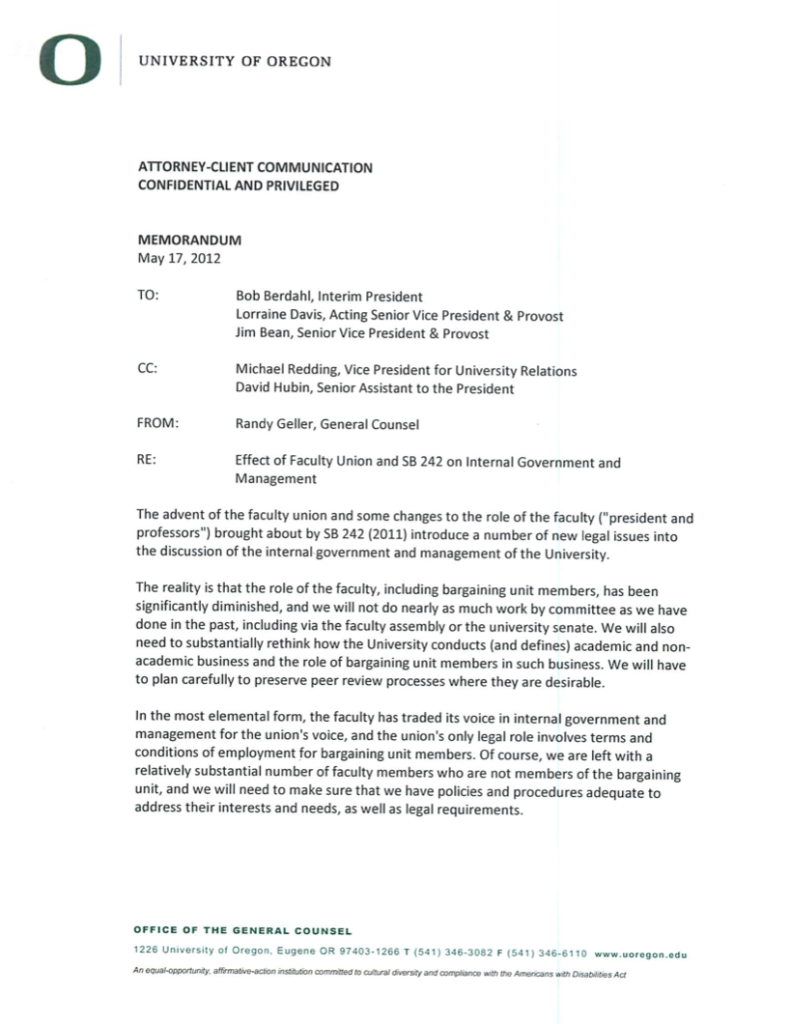
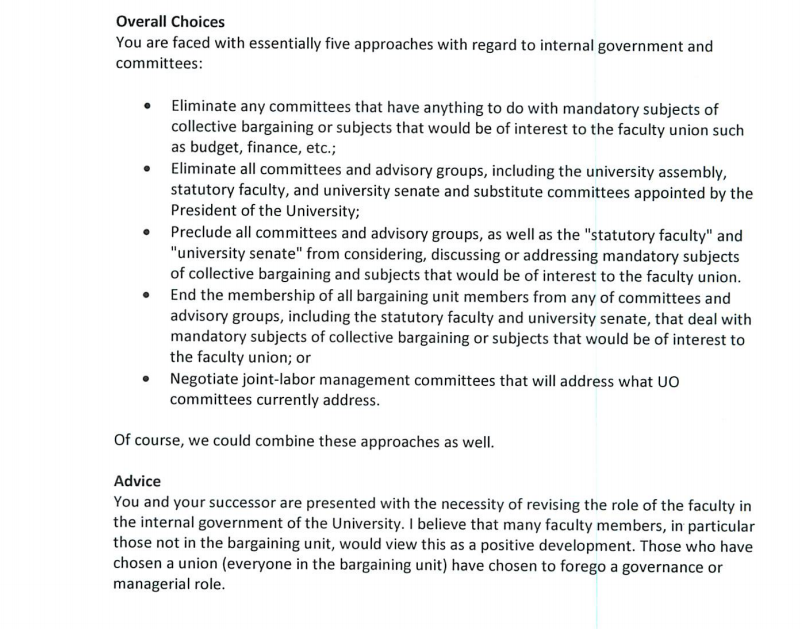
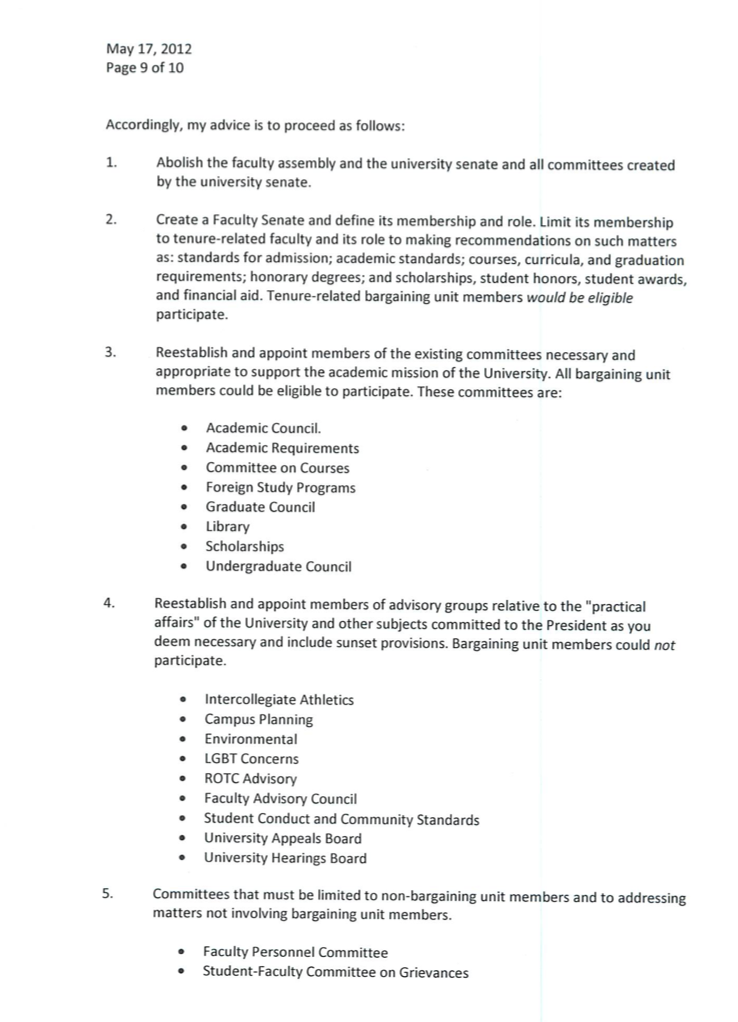
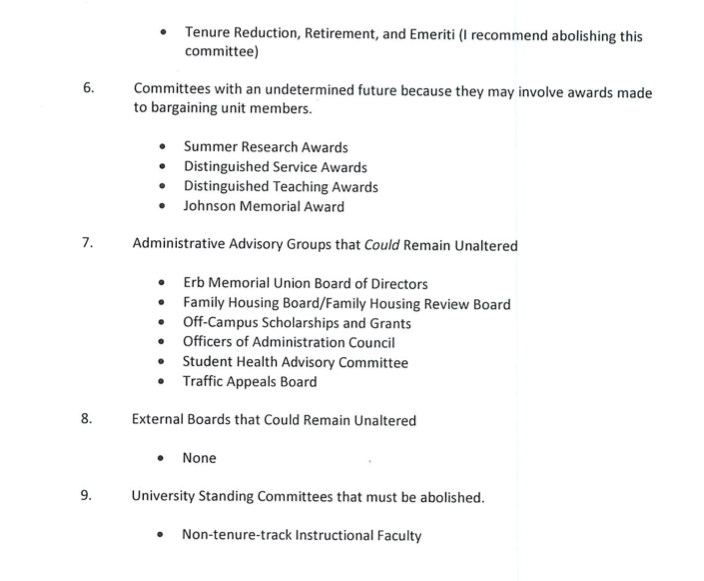
“…the transformation of Rome from Republic to Empire never happened. Officially, imperial Rome was still ruled by a Senate that just happened to defer to the emperor,” (Paul Krugman)
With respect to my plea to the Senate to fix the FAC, UO Matters writes:
“I disagree that there is a conflict between faculty participation in open shared governance via the Senate and the closed (but elected) Faculty Advisory Council. I think they are complementary, and the more overlap between the two bodies the better.” If Bill was trying to provoke my response, he couldn’t have done better.
The State Charter and the Constitution: In 1876, the State Charter of the UO decreed that two parties (Professors and President) share the responsibility for governing the UO. Later, the State Board of Higher Education granted the President veto power as well as paid staff. In the process of administrative expansion, the Professors’ role in shared governance was squeezed, and the Administration generally held the decision-making power, without needing to exercise the veto. While nothing can reverse the veto power or the Administrative expansion, the UO’s Constitution was designed to save the University from becoming an Administrative dictatorship. Specifically, the Constitution prescribes a step-by-step protocol by which differences between the Administration/President and the Senate/Professors must be resolved. This protocol ensures that both administrative and professorial perspectives get full and fair hearing, provided that both parties carry out their steps in good faith. However, as detailed in my Constitution Day article, ongoing presidential interference in the operations of the Senate short-circuits the Constitutional process at its root, with neither Administrative nor Senate positions ever being properly expressed. Increased overlap between Senate and the FAC, as we shall see, would only make matters worse.
Where Bill’s FAC/Senate overlap takes us: Envision a Senate whose membership includes all of the non-JH FAC members. That’s maximum overlap and, according to UOM, should lead to maximum “good.” Now consider a notice of motion that comes to the Senate to be debated and voted on at a subsequent Senate meeting. In the meantime, at a FAC meeting, the President and his Confidential Advisors secretly consider possible impacts on donors. After some discussion, the Confidential Advisors agree, with murmurs and nods, that the President has a point and that they will argue against the motion in the Senate.
Now, skip to the Senate meeting in which the Professors (and other Senators) expect to debate the motion as it relates to the mission of the University. Fifteen Senators are secretly committed to opposing the motion, but cannot tell why. At the Senate meeting, their chorus of voices explains nothing while propelling the Senate to a negative vote. The Senate has been outflanked by the President, and the Professors’ attempt to effect change never got the transparent hearing and negotiation called for by the Constitution.
So, what’s to be done? At the Senate meeting last December, the President stated that he would, indeed, like to meet in confidence with elected Faculty in order to test his ideas. He gave no indication that these faculty members need be Senators. Thus, the President and the Professors can have a win-win by removing Senators, including the Officers, from the FAC. That simple move will get our Constitutional Shared Governance on track.